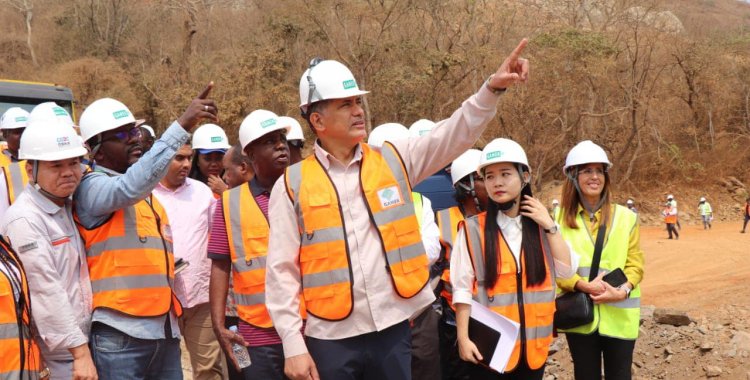João Baptista Borges spoke to the press on the sidelines of the 7th edition of the “Africa Energy Market Place (AEMP), which takes place today in Luanda, dedicated to the theme “Accelerating Reforms and Increasing Investments in the Energy Sector”, organized by the African Bank of Development (BAD).
According to the minister, electricity currently has a very low tariff, below one cent on the dollar, while the average in the region is 10 cents on the dollar.
“It is clear that from a perspective of attracting private capital, private actors to the activity of production and distribution of electrical energy, we have to practice a tariff that does not include subsidies, it has to be a tariff, a price, that reflects costs and is a gradual process , which will certainly take place, with a progressive adjustment of tariffs”, said the minister.
The government official stressed that at the moment there is no time horizon for doing so, depending on what the agreement made at the executive level is, “but it is certainly an action that will one day take place”.
The minister highlighted that the participation of private capital is essential to grow the sector, which cannot be developed with public financing alone.
“We need to look for the private sector”, repeated João Baptista Borges, pointing out as challenges the removal of tariff subsidies, still with a large percentage of subsidies, mainly with fuel.
João Baptista Borges highlighted that the private sector also wants clear regulations and guarantees, so there is this work to update the regulations that the Government is carrying out with the ADB and other bodies.
“The creation of guarantee instruments and also the independence of the regulatory entity, these are basically the conditions that we have to meet so that we can create more attractive conditions for the participation of the private sector and, I repeat, it is essential to have private capital in the electricity sector”, declared the minister.
In turn, ADB Vice President for Energy, Climate and Green Growth, Kevin Kariuki, said that the subsidy issue is political, stressing that the only two ways to bring revenue to the sector is for customers to pay for the energy they consume and with the subsidy of the sector by the Government.
Kevin Kariuki considered it important that customers pay for energy supply, with tariffs that reflect the cost, the “only way to have a sustainable sector”.
“It is also important to mention that this supply must be produced, transmitted and distributed in the most efficient way, because customers do not pay for inefficiency”, he stressed, arguing that it is necessary for the country, gradually, to move to tariffs that reflect the cost .
João Baptista Borges expressed satisfaction with the choice of Angola to hold this 7th edition of the Africa Energy Market Place 2023, which reflects ADB's interest in promoting projects in the country.
During the event, Angola presented the investments made in energy production, in increasing production capacity, which resulted in a surplus of around four gigawatts currently.
According to the minister, the sector has 6.3 gigawatts installed and is consuming only two, also reflecting concerns about transporting this energy to different regions of the country, particularly the east and south.
Angola currently has an electrification rate of 43 percent and aims to reach 50 percent by 2027.
“It seems little, [but] 7 percent means we make one million and 700 thousand home calls, let's not forget that the population grows by another million people every year. Making one million and 700 thousand home calls means we make more than 250 thousand calls per year by 2027, it is a significant financial effort to reach 5 percent. It’s an ambitious goal, even though those seven figures seem small,” he noted.







